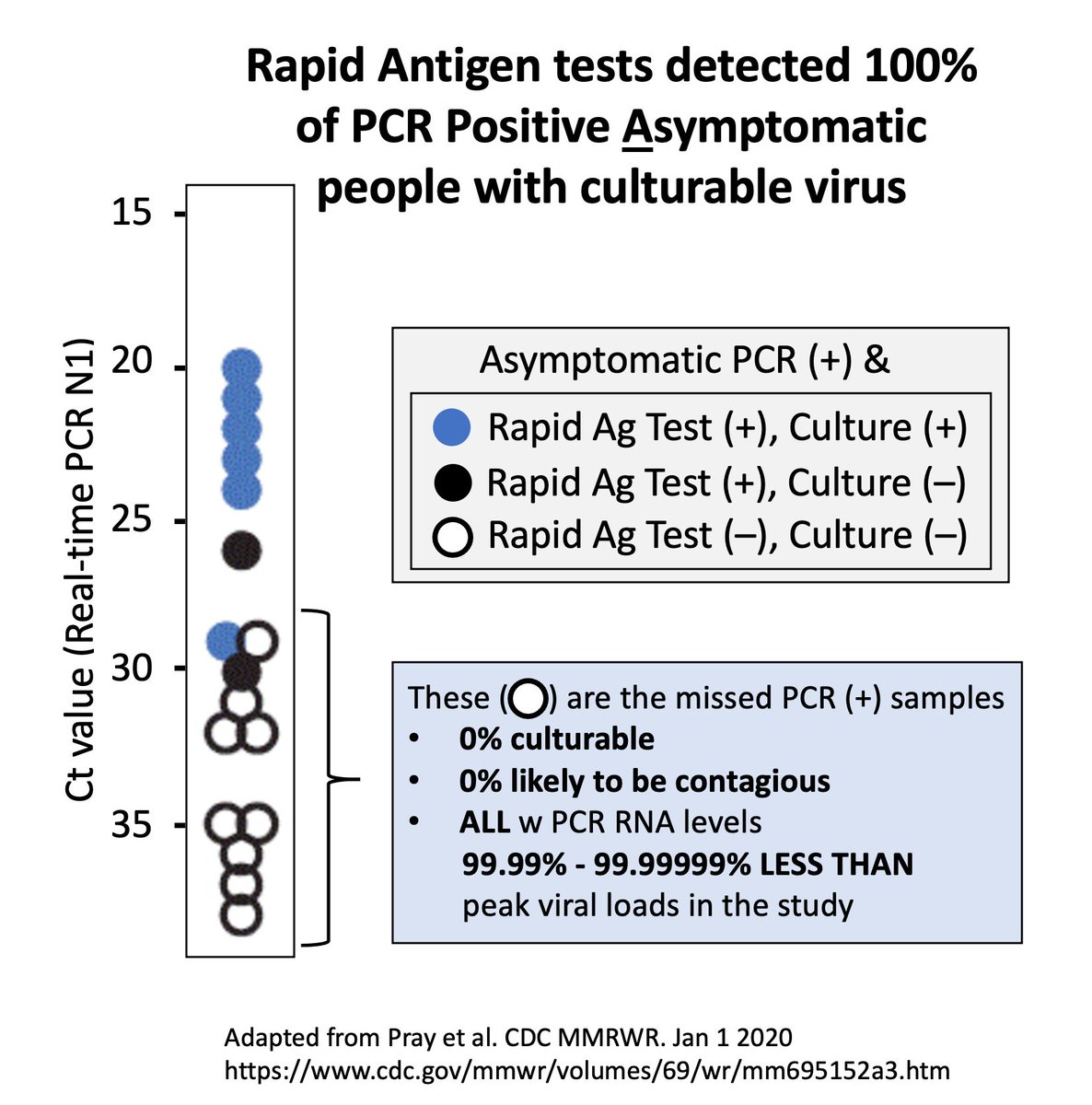
UK Rolling out #COVID19 Rapid Tests!
**NOTE: A quote says rapid tests missed 60% of positives in Liverpool
NOT accurate
VAST majority of MISSES were LOW PCR RNA & thus NO LONGER CONTAGIOUS.
(PCR remains Positive for a long time, rapid Ag does not)
theguardian.com/world/2021/jan…
**NOTE: A quote says rapid tests missed 60% of positives in Liverpool
NOT accurate
VAST majority of MISSES were LOW PCR RNA & thus NO LONGER CONTAGIOUS.
(PCR remains Positive for a long time, rapid Ag does not)
theguardian.com/world/2021/jan…
Despite some poor messaging in UK - Rapid Ag tests work WELL to find CURRENTLY INFECTIOUS ppl
Frequent rapid Ag testing sensitivity is >95% to find infectious people.
(ppl get confused & say they're low sensitivity - but that's when compared to RNA on PCR from prior infection)
Frequent rapid Ag testing sensitivity is >95% to find infectious people.
(ppl get confused & say they're low sensitivity - but that's when compared to RNA on PCR from prior infection)
A major attribute of rapid Ag testing is they can be FREQUENT
It's not the sensitivity of a test to find virus particles that matters
It's the sensitivity of the testing program to find and isolate infectious people that matters.
For that, PCR often fails. Rapid Tests do well.
It's not the sensitivity of a test to find virus particles that matters
It's the sensitivity of the testing program to find and isolate infectious people that matters.
For that, PCR often fails. Rapid Tests do well.
PCR fails for detecting and isolating infectious people:
1) Bc it is usually NOT frequent (Cannot catch contagious peoplebefore they have symptoms if not testing frequently)
&
2) Results take a long time. So even when you do find an infectious person, they still spread for days
1) Bc it is usually NOT frequent (Cannot catch contagious peoplebefore they have symptoms if not testing frequently)
&
2) Results take a long time. So even when you do find an infectious person, they still spread for days
This is NOT to say that we should not do PCR. But if it takes more than a few hours to return a result, it should be reserved for clinical medical diagnostics. NOT for screening and finding infectious people. unless it is being performed 2x/week - which it almost never is.
Also, Important to this discussion too... New research is showing that rapid antigen tests being performed by self (rather than a professional) is working essentially as well as a medically trained professional.
https://twitter.com/michaelmina_lab/status/1348117804084584449?s=20
• • •
Missing some Tweet in this thread? You can try to
force a refresh



